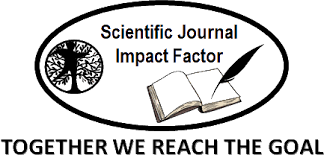Intercultural Learning through Traditional Folk Stories
Abstract
The development of monocultural societies into multicultural and intercultural ones and the existence of the culture shock as one of the problems inherent in all societies in the new world order leads us to question the established educational model and promote instead the Intercultural Education as an alternative framework in which educators and mediators can develop a type of learning which engages seriously with the diversity of multicultural societies and directs the foreign language learners to move beyond stereotypes and negotiate and construct meanings in relation to the foreign language and the culture associated with it. We suggest that the mythological stories compiled in the bilingual anthology developed by Kay Livinston and Margarida Morgado (2005) on 'creatures of the sea' which can be found in both Scottish and Portuguese cultural repertoire could set off students' socio-cultural knowledge acquisition since the stories capture the dynamic systems that cultures are and offer multiple ways for the learners to gain greater awareness of their own culture (its dominant meanings, values, beliefs, preferred ways of doing, thinking and representing otherness) and negotiate meaning in the foreign language and culture learning process.
Keywords: Culture, education, learning, training, folklore.
Downloads
Published
How to Cite
Issue
Section
License
Declaration/Copyright transfer:
1. In consideration of the undertaking set out in paragraph 2, and upon acceptance by ANGLISTICUM for publication of the manuscript in the Journal, I/We hereby assign and transfer publication rights to ANGLISTICUM, whereas I/We retain the copyright for the manuscript. This assignment provides ANGLISTICUM the sole right and responsibility to publish the manuscript in its printed and online version, and/or in other media formats.
2. In consideration of this assignment, ANGLISTICUM hereby undertakes to prepare and publish the manuscript in the Journal, subject only to its right to refuse publication if there is a breach of the Author’s warranty in paragraph 4 or if there are other reasonable grounds.
3. Editors and the editorial board of ANGLISTICUM are empowered to make such editorial changes as may be necessary to make the Manuscript suitable for publication.
4. I/We hereby acknowledge that: (a) The manuscript submitted is an original work and that I/We participated in the work substantively and thus I/We hereby are prepared to take public responsibility for the work; (b) I/We hereby have seen and approved the manuscript as submitted and that the manuscript has not either been published, submitted or considered for publication elsewhere; (c) The text, illustration, and any other materials included in the manuscript do not infringe upon any existing copyright or other rights of anyone.
5. I/We hereby indemnify ANGLISTICUM and the respective Editors of the Journal as mentioned in paragraph 3, and hold them harmless from any loss, expense or damage occasioned by a claim or suit by a third party for copyright infringement, or any suit arising out of any breach of the foregoing warranties as a result of publication of the manuscript.













